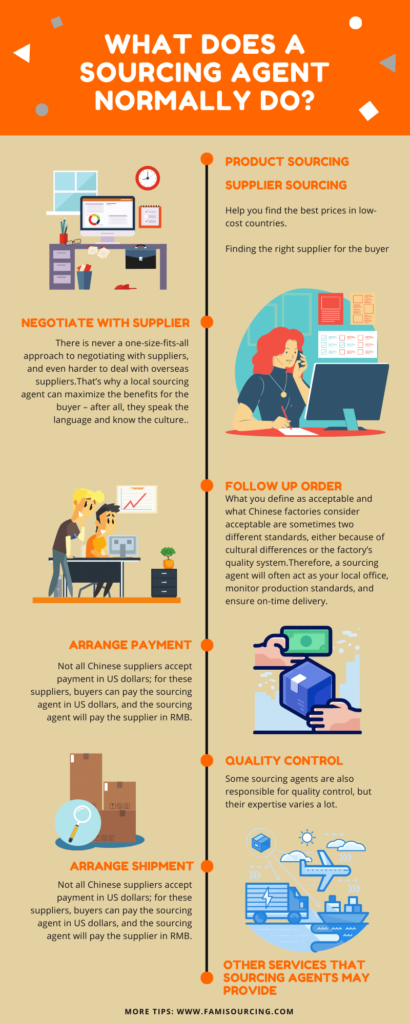A lot of people don’t know the difference between a sourcing agent and a sourcing company. A lot of times, an agent and a company are confused for each other. This can cause a lot of confusion as to what they do, how they provide their services, and how they are different from one another. In this article, I’m going to tell you the differences between a sourcing agent and a sourcing company.



What’s a Sourcing Agent or Sourcing Company?
A sourcing agent is someone who helps you find products to sell on your store. They can be a freelancer, an employee of a company, or even another company that specializes in helping people find suppliers.
A sourcing company is a business that specializes in finding manufacturers and suppliers for other companies. They also can help with quality control and shipping logistics so you don’t have to worry about any of that when starting your own ecommerce business!
What services do they provide?
A sourcing agent will find products that you can sell on your store, and they may even help to negotiate prices with manufacturers. They also can provide some marketing support, such as coming up with ideas for products to sell or helping you optimize your listings.
A sourcing company will find manufacturers for you and handle all of the logistics involved in getting them from China to your warehouse. This includes quality control checks, packaging design and production, shipping costs, etc.


How to choose a suitable Sourcing Agent or Sourcing Company?
It’s important to find a sourcing agent that has good relationships with manufacturers in the China. This will give you access to quality products at the best price possible. You should also look for someone who has experience working with other companies in your industry, as they will be more familiar with what sells well.
1. Make sure the Sourcing Agent has a good knowledge of the industry and products you want to buy.
2. Find out if they are capable of offering you transportation and freight services or not.
3. Check their language capability, communication skill with clients/suppliers and problem-solving ability at work if they can fit into your company culture or not..
4.Find out how much do they charge for their services? Will it be a one-time payment or a long-term contract?
5. Ask them about their schedule and turnaround time of operations, whether it meets your requirement or not, and based on that determine which one is suitable for you or not?
How does Sourcing Agent or Sourcing Company charge fees?
A sourcing agent or company can charge a flat fee for each order, or they may take a percentage cut of each sale. Some companies offer both services and let you choose which one to use depending on your needs.
1. Commissions based on their final negotiated price
If you’re selling a product, the sourcing company will take a commission based on their final negotiated price. For example, if they negotiate $10 per unit and you sell it for $15, they’ll take $5 of that amount (50%).
2. Fee based on the order value (FOV)
If you’re selling a service, the sourcing company will take a fee based on the order value. For example, if they negotiate $10 per unit and you sell it for $15, they’ll take $5 of that amount (50%).
Flat Fee In some cases, companies may charge a flat fee for each order placed. It depends on what kind of work or services are involved in finding the supplier or manufacturer.
3.Hourly rate
The sourcing company may charge an hourly rate for their services. They’ll typically calculate this based on the number of hours it takes to find and negotiate with suppliers or manufacturers.
4.Fixed monthly fee
In some cases, companies may charge a fixed monthly fee for their sourcing services. This is a more common approach for larger companies that require regular sourcing assistance but don’t want to pay for each individual order placed.

Takeaway: There are a variety of ways in which procurement agencies can charge clients, but it is important to make sure that you understand how they will be charging you and whose interests they are representing.